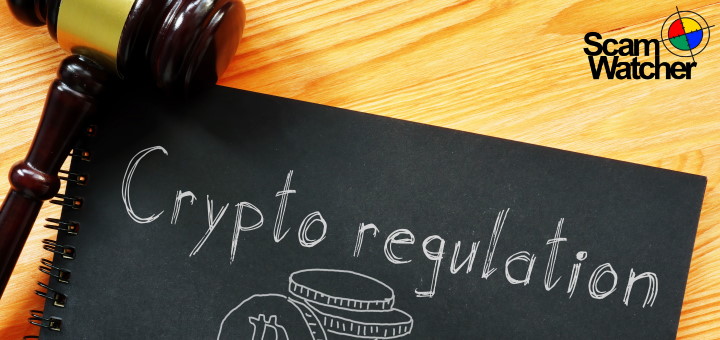U.S. KYC Regulations: What Are They and How Can They Help Victims of Cryptocurrency Scams Recover Lost Funds

It’s no secret that cryptocurrency scams have been on the rise in recent years. Victims of these scams have lost millions of dollars worth of digital assets. However, new KYC regulations in the United States are helping to combat this problem and give victims a better chance of recovering their lost funds. In this article, we will explain how these KYC regulations work and how they are helping to protect consumers from fraudulent activities in the crypto world.
What are KYC’s?
KYC, or “know your customer,” is a set of guidelines businesses must follow to verify their customers’ identities. These regulations are nothing new and have been around for years in other industries. However, they are only now being applied to the cryptocurrency industry.
The Financial Crimes Enforcement Network (FinCEN) is responsible for enforcing KYC regulations in the United States. FinCEN is a bureau of the US Department of the Treasury responsible for combating money laundering and other financial crimes.
KYC regulations require businesses to collect certain information from their customers, such as full name, date of birth, physical address, and government-issued ID. This information serves to verify the customer’s identity.
In the past, many cryptocurrency exchanges and other businesses operating in the crypto space did not follow KYC guidelines. Unfortunately, this has resulted in many financial crimes, as it was effortless for criminals to open anonymous accounts and conduct illegal activities without being detected.
Are KYC regulations really helpful?
However, KYC regulations are changing all of that. By requiring businesses to verify the identities of their customers, it is becoming much more difficult for criminals to operate in the crypto space.
In addition, KYC regulations are helping victims of cryptocurrency scams recover their lost funds. In many cases, victims of these scams have had their funds stolen by anonymous criminals who operated using fake or stolen identities.
By enforcing KYC guidelines, exchanges and other businesses can now track down these criminals and return the stolen funds to their rightful owners.
Major cryptocurrency scam funds recovered because of regulations
As KYC regulations continue to be enforced in the United States, victims of cryptocurrency scams are finding more success in recovering their lost funds. For example, earlier this year, a victim of a bitcoin Ponzi scheme was able to get his money back from Binance, one of the largest cryptocurrency exchanges in the world.
According to reports, the victim had invested $3,000 in a bitcoin Ponzi scheme operated by a man named Ryan Kennedy. Kennedy was later arrested and charged with fraud. However, the victim could not get his money back from Kennedy himself.
However, thanks to KYC regulations, the victim got his money back from Binance. Binance identified Kennedy as the scam’s operator and returned the stolen funds to the victim.
See: ‘Pig Butchering’ Crypto Scam Victim To Get Money Back From Binance, Law Enforcement Says
This Silicone Valley victim’s story is just one example of how KYC regulations are helping to protect consumers and return stolen funds to victims of cryptocurrency scams. As KYC guidelines become more common in the crypto world, we can expect more cases like this to occur.
So far, KYC regulations have effectively combat fraudulent activities in the cryptocurrency industry. And as more and more businesses begin to comply with these regulations, we expect that the number of scams will continue to decrease.
FinCEN’s Rapid Response Program
The Department of Justice, Federal Bureau of Investigation (FBI), and Financial Crimes Enforcement Network (FinCEN) continue to focus on combating fraudulent activities in the cryptocurrency industry. In a recent press release, FinCEN stated that the Rapid Response Program helped to recover over $1.1 billion.
See: DOJ, FBI, and FinCEN Continue to Focus on Crypto and Cyber Financial Crime
The RRP is a program run by FinCEN that helps victims of cryptocurrency scams recover their lost funds. In addition, the program provides financial institutions with a way to return stolen funds to victims of scams without fear of violating laws.
Since its inception, the RRP has successfully returned stolen funds to victims of cryptocurrency scams. In addition to the $1.1 billion that has already been recovered, the RRP has also returned more than $10 million to victims in the past year alone.
This is just a tiny sample of FinCEN’s work to combat fraud in the cryptocurrency industry. The Department of Justice, FBI, and FinCEN are all committed to stopping scam artists from victimizing innocent people.
Recovering lost funds through FinCEN’s RRP
To recover funds from a cryptocurrency scam, a victim or financial institution can file a complaint with the FBI’s Cyber- and Internet-related Crime Complaint Center (IC3). The IC3 accepts complaints from individuals, businesses, and law enforcement agencies. They also take complaints about various cybercrimes, including cryptocurrency scams.
Visit the IC3 website at: https://www.ic3.gov/complaint/default.aspx
You can find more information about the program on FinCEN’s Fact Sheet on the Rapid Response Program (RRP).
What can you do if your cryptocurrency disappears?
If you’ve ever had your credit card number stolen, you know the panic and frustration that can ensue. But what do you do when your digital currency holdings get hacked?
See: Recover from hacked virtual currency.
It’s happened to numerous people over the past few years. In most cases, the perpetrators make away with millions of dollars in digital currency.
That said, there are some things you can do to try and recover your lost funds. Here are a few tips:
- File a police report – When you file a police report, include as much information as possible about the theft. The report will help law enforcement officials track the perpetrators and recover your lost funds. You can refer to page 3 of the Information to Provide to Law Enforcement to Activate the RRP sections included in FinCEN’s fact sheet as a guide.
- Contact the FBI – You could also contact the FBI if the theft occurred in the United States. The agency has been stepping up its efforts to combat cryptocurrency fraud in recent years.
- Contact the CFTC – The Commodity Futures Trading Commission (CFTC) is also responsible for investigating cryptocurrency-related crimes.
- Contact your local law enforcement agency – If the theft occurred outside of the United States. They may not have jurisdiction over crimes committed in other countries, but they can still help you track down the perpetrators and recover your lost funds.
- Contact the online security firm that protects your wallet – Contact them immediately if you use an online security firm to protect your digital currency holdings and ask them for help recovering your lost funds. Many firms have experience dealing with cryptocurrency thefts and may be able to help you get your funds back.
These are just a few steps you can take if your Bitcoin or other cryptocurrency disappears in a scam. Be sure to consult with a lawyer before taking any legal action. Also, remember that recovering stolen or lost funds can be difficult, if not impossible. So don’t put all your eggs in one basket and take additional precautions to protect your digital currency holdings.
Conclusion
KYC and AML regulations aim to prevent financial crimes, including scams involving cryptocurrency. However, FinCEN’s Rapid Response Program can help you recover your lost funds if you are a victim of fraud. For more information on how to file a complaint or to find out if your stolen funds may be eligible for recovery through the RRP, please visit FinCEN’s website. Have you ever been scammed in the cryptocurrency world? What was your experience with recovering lost funds? Let us know in the comments below.

I’m Akim Laniel-Lanani. I am the cofounder and Director of the Clinique de cyber-criminologie, as well as a holder of a bachelor’s degree with a specialization in financial crime. For more than a year now, I have been working in the fight against cybercrime. My primary focus is on frauds that target individuals.
What drives me is my passion to help my community better defend itself against crime. I work actively to train passionate students to help in the fight against cybercrime and raise awareness about the various crimes committed with the use of the Internet and technology.


Azərbaycan
I have logged a lot of complaints it would be better if I understood why I have all these users on my phone and maybe if they would have invited me to like show me what they’re doing and stuff maybe I could have done it maybe I couldn’t I’m not very computer oriented but I try I do not understand I mean they’ve taken my bitcoins they’ve taken my they’ve taken everything any money I’ve made they’ve taken cash my cash app my PayPal they are linked to it so I can’t even collect my money not ever in the last year I have collected nothing not even money for money for unemployment money for prices that I won nothing I have done I’ve got nothing and I wouldn’t be griping so much if I had something because I just lost my travel trailer with everything I owned and somebody just pulled right up to it and took it so it’s not like I couldn’t use some of that money you know right now they’re trying to take a settlement that I I don’t understand these are good people they wouldn’t do that they would share and you know what I would share with everybody everybody anyone who knows me knows that I’ll share or help them as much as I can even if I don’t understand my credit score is so bad I can’t even take a loan out to try to get me a place to live now it’s some of the users that are on my phone I don’t know their names I don’t know which ones doing it I might know a couple that are doing it cuz they think they’re close to me is what they’re telling me maybe you can pass this on to the users cuz I don’t have any idea how to contact them
Hi am Lucy I was scammed by someone from icoprimex LLC Simon chumo 343 USD
Their website may seem like a legitimate investment platform, they also claim that their company has quite a history that starts off from June of 2018 when in reality this website is barely 4 days old. You all should be careful out there, there are scammers everywhere.
Y’all should be careful because I got scam by those scam links so be very careful !!
Universalacess.ltd.. She is loosing her head please..i see she isnt the only one in the sad train.. i came across same report searching Universalacess.ltd through on scamadviser..
WE NEED HELP
Fraud Company: TEDEFI
I am writing you because some scammers has stolen my money using a rug pull that happened on Sunday, 2 February 2024.
The emergency is to freeze their funds before they manage to send it to another blockchain or else.
Project name : Tedefi
Project Token : Tefi
Application used to implement the fraud: Telegram (@tedefibot)
Project objective : providing a way to exchange and to send cryptocurrencies via usernames via a telegram chat with a bot.
They will probably strike again making a new number of victims.
My tedefi two wallets addresses to which I sent my funds (BNB) from my Binance account:
0x3FF47aFD51F704c4b3137bF16bF18dcb3FC25264
0x6C5beC0712fe137cF60De3E188FCD5F10a4072Ba
They stole me more than 68k USD just from me!! I have basically lost the better piece of my theories until I finally found Mr Richard, reach out to him via +1 4692151086 on whatsapp or Gmail- richardservodiobtcassetrecover , his the best btc asset recovery agent with legitimate plans and they have completely helped me with fostering some advantage which led to getting back what I lose.